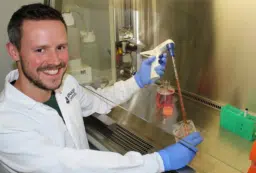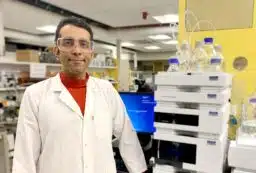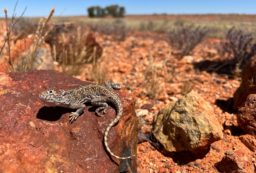Researchers at Prince Henry’s Institute in Melbourne have discovered how an extra copy of a gene halts the process of becoming a boy.
Their work may lead to earlier diagnosis and better management of a condition known as disorder of sex development (DSD) whereby one in 4500 babies is born with ambiguous or incomplete genital development, making it difficult for parents and doctors to identify whether the child should be raised as a boy or a girl.
The gene, known as DAX1, regulates sexual development. An extra copy of DAX1 in male babies blocks the development of the testicles entirely, and this is responsible for some cases of DSD, says PhD candidate Louisa Ludbrook who undertook the research.
Using cells in culture, the researchers found that increasing copies of the gene DAX-1 could block the production of a potent male factor, called SOX9. This factor is important in most animals with testicles.
“A common requirement for testicle development, conserved between species as diverse as humans and reptiles, is an increase in production of the gene SOX9. When SOX9 production reaches a certain level, testicles, rather than ovaries, will develop,” says A/Prof Vincent Harley, head of the Human Molecular Genetics unit at Prince Henry’s Institute.
“By knowing exactly the point when development of the testicles is blocked, we can help parents and doctors decide on the best treatment options for these kids, be it hormone therapy or surgery,” says Louisa.
“And studying these kinds of conditions also helps us understand the broad sweep of human sexual development,” says Louisa.
The discovery was presented at The World Congress on Hypospadias and Disorders of Sex Development held recently in Rome.
Louisa received a Monash University postgraduate travel award to study DAX1 in mice at the UK National Institute of Medical Research, London, in the laboratory of Dr Robin Lovell-Badge, a leading expert in the field.
Louisa Ludbrook is one of 16 early-career scientists chosen for Fresh Science, a national program sponsored by the Federal and Victorian governments. She is presenting her research to the public for the first time.





 Fresh Science is on hold for 2022. We will be back in 2023.
Fresh Science is on hold for 2022. We will be back in 2023.